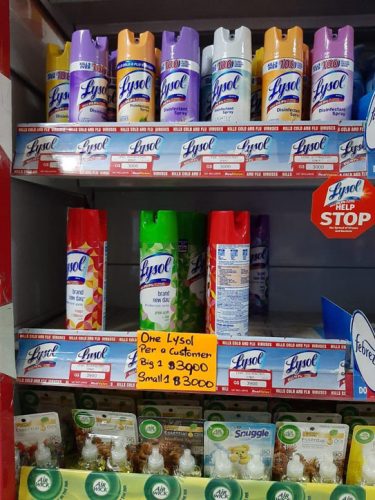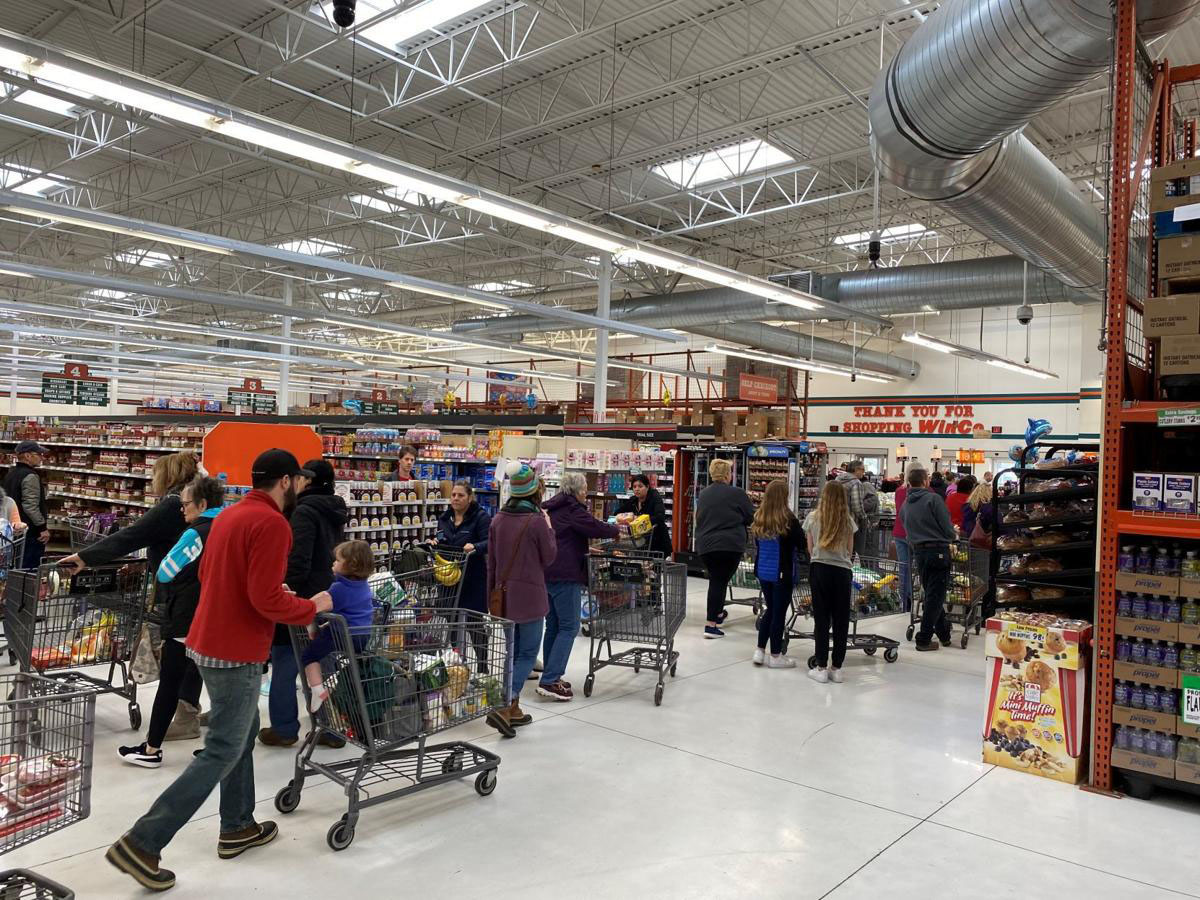Guyana and the rest of the Caribbean are hunkering down as best they can in response to the arrival of the Coronavirus (COVID-19) in the region. The response up until now, more than a week after the virus began to cause a stir in the region, has been characterised by militancy rather than unrestrained panic. If, however, death tolls begin to rise and countries in the region begin to measure the scale of the crisis against their response capabilities, the level of worry is almost certain to grow significantly.
Across the Caribbean, official reaction to the coronavirus outbreak has been limited largely to urgings about sanitizing and public warnings to avoid the holding of events that will give cause for even reasonably large gatherings. As yet, there are no ‘miracle’ vaccinations, and even if and when those do materialise, they are unlikely to find their way to this part of the world first; so that up until now the response here in the Caribbean has been largely defensive. Sanitize! Sanitize! Sanitize! is the message that has emerged from one company here in Guyana. If it is a not unwelcome message it is still not nearly as reassuring as it needs to be.

In large measure, Caribbean territories are bound to take their cue from US President Donald Trump’s declaration that the virus constitutes a “national emergency.”
What will doubtless get the attention in Guyana and the rest of the region, as well, is the fact that even before the panic buying of detergents and disinfectants emerged here last week, there had already been reports of suppliers’ outlets being set upon by hoarders in parts of the United States.
That development was taken sufficiently seriously in Washington to trigger a direct appeal from President Donald Trump to Americans to desist from what had come to resemble a siege mentality.
It was just over a week ago that the outlets here in coastal Guyana were set upon following the news of the country’s first COVID-19 fatality. High-demand goods disappeared from shelves and prices became gouged, alarmingly, in some instances. Almost a week after the ‘raid’ on outlets had come and gone the Georgetown Chamber of Commerce and Industry (GCCI) issued a statement, a section of which targeted traders to refrain from “blatant and inconsiderate price hikes,” and exhorting the importance of suppliers remaining cognisant of the fact that some Guyanese are “void of financial resources.” These pronouncements, in the circumstances, would have had little relevance in a society where the slightest whispering can trigger hoarding and jacked up prices. Beyond that, whether or not the Georgetown Chamber or any other local Business Support Organization for that matter, can be effective in accessing the conscience of the business community in these circumstances is probably questionable.
By far the greater worry in a situation such as this, however, has to do with the fragility of the national public health system. The extent of the detection and treatment capabilities of the state-run hospital facilities in Georgetown – and the private hospitals, for example, is unclear given the fact that up until now status updates on the COVID-19 situation have been confined largely to numbers counts in terms of new victims. Outside of the capital and particularly in the interior regions, an absence of detection and treatment facilities may will be inhibiting an accurate victim count.
What the spread of COVID-19 has done to poor countries like Guyana is to cruelly expose the vulnerabilities of their health services. As has been the case elsewhere in the Caribbean, perhaps the most helpful initiative that has been undertaken so far has been the temporary closure of schools and the rescheduling of workplace arrangements, including the institution of shift systems, both designed to minimise the sizes of gatherings in the same space at any particular time.
Reports emanating from elsewhere in the Caribbean point to initiatives, admittedly modest ones, to try to push back the spread of the infection. Jamaica, possessing arguably the most pro-active private sector in the Caribbean, was reporting, earlier this week, that its local manufacturers were in the processes of moving fresh supplies of locally manufactured hand sanitizers and paper towels onto the local market at ‘old stock prices’ and that the quantities manufactured had been sufficient to respond to an order from the eastern Caribbean. The Jamaica Gleaner reported, meanwhile, that an enterprising member of Jamaica’s service sector had seized the opportunity to market a home-schooling service, since the Education Ministry in Kingston has also gone the way of a temporary closure of schools.
As concerns over the virus continue to weigh heavily with the respective governments, there are reports that the region has moved to put a hold on all international gatherings. Jamaica, reportedly, has announced an arrival ban on all foreigners from Europe, China, Iran and South Korea.
As of late last week it was being reported that in response to the ‘arrival’ of the virus in the region, the Caribbean Public Health Agency (CPHA) had raised the COVID-19 risk level from “moderate to high” then afterwards to “very high,” in the wake of the acknowledged presence of COVID-19 in the region.
Up until now, regional governments appear to have been focussing on preventative measures that restrict arrivals in their respective countries. Those measures, however, coupled with the travel bans affecting some airlines and cruise ships are bound to have a considerable economic knock-on effect in the heavily tourism-dependent territories. However, by late last week, after a US State Department Advisory had issued a blunt warning to its citizens to steer clear of cruise ships, even some of the more heavily tourism-dependent territories in the region appeared to have taken a decision to ‘bite the bullet’. Jamaica and Antigua and Barbuda were reportedly among the first countries in the region to refuse entry to cruise liners. Those decisions were taken by governments, conscious of what, in most instances, are likely to be numbing economic consequences.
Whereas overall GDP growth for the region had been tagged at around 3.7% for this year, COVID-19 and its consequences may well have pushed that number down to “maybe 2 %, maybe lower,” reports a Caribbean economic analyst at Smith’s Research & Gradings, a US-based financial credit grading company.
Up to last week, Jamaica’s Tourism Minister Edmund Bartlett was able to put a recent figure to Jamaica’s losses resulting from the drying up of cruise ship arrivals. Passenger losses, he said, numbered roughly 50,000, which translates into around US$4 million in losses to the country’s economy. Elsewhere in the region, in some instances, advance visitor arrival reservations have reportedly fallen by around 50 per cent.
The real worry here in the Caribbean has to do with the fact that having ‘done its rounds’ in a number of developed countries with a greater resistance capability, the coronavirus would appear to be in the process of sinking its claws into a weaker victim… the Caribbean. Whereas in countries like the United States a better-appointed health service tends to engender a higher level of public assurance, weaker health services, like those in the Caribbean are inclined to give rise to apprehension, rumour and in some instances, panic. Here in Guyana (and almost certainly in other parts of the region) there have been reports that persons with non-COVID-19-related ailments were avoiding hospitals, apprehensive about the likelihood of inadvertent infection.
And again, as has been reportedly the case elsewhere in the region, the official advice coming from the health authorities has been limited largely to continued urgings to sanitize living and working surroundings and to avoid large gatherings. Nothing more reassuring is on the table at this time.






